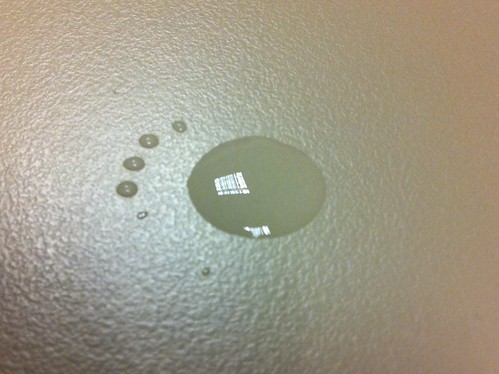If you don't like soy you can still have a big impact by switching to other types of beans / lentils / legumes, and an even bigger impact by switching to grains (just be aware that nuts actually have a pretty high water footprint). If you want to look up the water footprint of specific foods, you can browse through a few of them at http://www.waterfootprint.org/?page=files/productgallery, and see a comprehensive list at http://www.waterfootprint.org/Reports/Mekonnen-Hoekstra-2011-WaterFootprintCrops.pdf
For people who don't eat burgers: any 1/3# serving of beef (steak, roast, etc) you swap out for a 1/3# soy burger still saves you about 579 gallons each time. Eating the soy burger instead of a 1/3# serving of pork saves 196 gallons (almost 3 days of home water use), and the soy burger saves 130 gallons over 1/3# serving of chicken (over two days of home water use). If you drink milk, every half gallon of soy milk you buy instead of cow's milk saves 377 gallons of water, which works out to a savings of 47 gallons of water per cup of soy milk. Coconut or oat milk also have low water footprints, but almond milk has a water footprint almost as high as cow's milk.
People interested in the water footprint (how much total water something takes to produce) of various animal products and some plant alternatives should check out http://www.waterfootprint.org/?page=files/Animal-products
It was pointed out to me (in a comment on http://blog.nature.org/2012/10/the-quickest-easiest-way-to-save-water/) that the water use for beef I cited is a global average, and that in the US our beef has a lower water footprint. There is another paper calculating water footprint of livestock by nation (http://www.waterfootprint.org/Reports/Report-48-WaterFootprint-AnimalProducts-Vol1.pdf), and they found that the water footprint for a 150g beef burger in the USA would be 562 gallons rather than 621 . That translates to a savings of 520 gallons of water for each soy burger consumed instead of an American beef burger. That still works out so that eating a soy burger instead of an American beef burger once per week saves more water than the average total indoor water use for a week.
Also, hopefully this goes without saying for people who know me, but unlike some similar figures you may have heard (usually from vegetarian advocacy organizations) this one is based on some really solid science and calculations. While one can debate the methodology used, the water footprint numbers have been validated by other authors (Zimmer & Renault 2003, Oki et al 2003). If you want to check or replicate my work you can download the spreadsheet where I made my calculations (which includes the citations) from http://fish.freeshell.org/green/WaterFootprint.xlsx

Great post, thank's for sharing. It's important to save water everyday, there're enterprises like ROCA that develope initiatives and technologies for saving water.
ReplyDeleteRegards,
Lisa